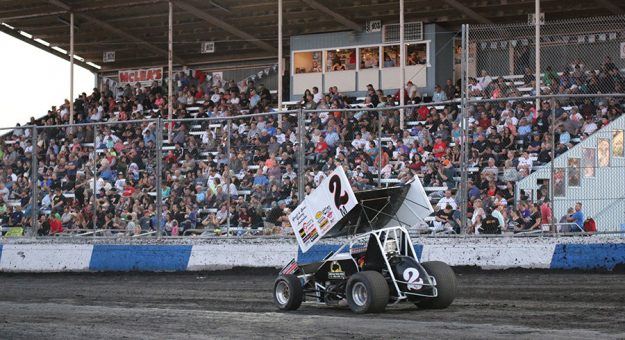In Petaluma, Calif., the question of which came first, the chicken or the egg, is purely theoretical.
In fact, both played a critical role in establishing this city, 40 miles north of San Francisco. Early day ranchers raised chickens. The incubator, which allowed modern-day mass production of eggs, was invented here more than a century ago, creating an industry that shipped 10 million eggs a year across the country and labeled Petaluma the “Egg Capital of the World.”
The city celebrates its agricultural heritage, which also includes vineyards, orchards, beef cattle and dairy, with an annual “Butter and Egg Day,” complete with cow patty tosses, a beauty queen contest and a parade that winds through several blocks of downtown.
Many people end the Saturday festivities at Petaluma Speedway, a three-eighths-mile clay oval at the Sonoma-Marin Fairgrounds, about a mile from downtown.
But Sonoma County, sandwiched between the well-known Napa Valley just over the ridge to the east and the Pacific Ocean on the west, is also at the northern end of a region generally called “the Bay Area.” It’s a swath of seven counties, beginning with Silicon Valley to the south and San Francisco at its hub, that is the fourth largest urban population center in the country and home to 7.5 million people.
The Sonoma-Marin Fairgrounds, named for the two counties that share it, has become a battleground between agricultural interests who are fighting to preserve tradition and the region’s heritage and more urban-minded members of the Petaluma city council, who favor development. The city owns the land where the fairgrounds is located.
Petaluma Speedway, which takes up the biggest chunk of the 60 acres, is being squeezed between the two forces like a sprint car going three-wide into a corner and battling the cushion.
“This has been hanging over my head since I came here 10 years ago,” said promoter Rick Faeth. “I’ve put on more than 250 events and I don’t think any city council member has ever been to any of them.”
But despite simmering for more than a decade, the issue has come to a head with a deadline looming for deciding the fairgrounds’ future. Like most fairground property in California, it is leased from the city for $1 a year. The current lease extension expires in December 2023. Thus, the future of the track is in limbo.
“They don’t have a public vision after 10 years,” said Faeth about the city council. “This is like a Doomsday Clock and we are two minutes to midnight.”
The land used to create the fairgrounds was originally called Agriculture Park, used as a horse farm and for harness racing. As horse racing moved to privately owned tracks, the oval found a new use.
“Ed Normi won the first midget race on the track in 1937,” noted local historian Harlan Osbourne, referring to a Petaluma local who also raced stock cars through the early 1950s. Former racer turned promoter John Soares trimmed the half mile to its current configuration in the mid-1950s.
“It has always been supported locally and it’s never lacked for fan support,” noted Osbourne. “Every radiator shop and gas station had a car. If a business sold fan belts, they wanted in on it.”
After taking over promotional duties from two generations of the Soares family in 2014, Faeth runs a program that is typical for a local track that draws fans who watch their neighbors race.
Over 26 weeks a year, Petaluma Speedway hosts a wide range of series, including the traveling King of the West-NARC sprint cars, the Sprint Car Challenge Tour for 360 sprint cars, his own track series for winged and non-winged 360 sprint cars, plus numerous entry-level racing divisions.
Faeth pays the fairgrounds a percentage of his revenue, “which is deep into six figures a year,” he noted, and it’s the fairgrounds’ largest source of revenue outside of the annual county fair. Following a public meeting of fairgrounds supporters in late September, Faeth signed an extension on his lease to coincide with the expiration of the fairgrounds’ lease. “I was eager to sign up for one more year while the fair manager was still here,” he explained.
A survey conducted in August by the Fourth District Agricultural Fair, which operates the fairgrounds, revealed strong public support for the fairgrounds and Petaluma Speedway.
Click below to continue reading.
